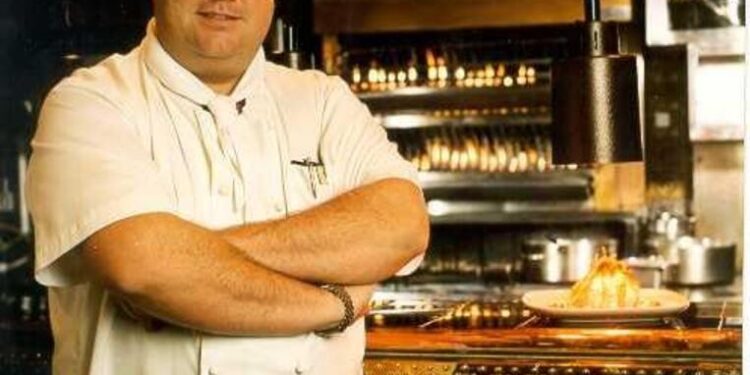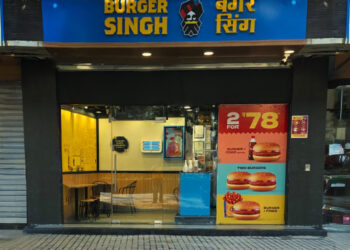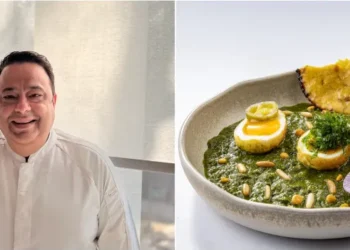Chokkapan S (cbedit@imaws.org)
In an era where food systems are under mounting pressure from climate change, shifting consumer expectations and the rapid integration of technology, chefs are increasingly seen as changemakers. Kitchen Herald reached out to Andy Cuthbert, President of Worldchefs, the premier global network of culinary professionals, to discuss how chefs can balance sustainability with innovation, preserve culinary heritage, adapt to plant-based demands, and mentor the next generation.
Kitchen Herald (KH): As the President of Worldchefs, how do you see the role of chefs evolving in today’s world where sustainability, technology and consumer expectations are reshaping the industry?
Andy Cuthbert (AC): In today’s ever-changing industry landscape, chefs must remain agile and continue learning. We must embrace technology and understand what it can do for us in our kitchens and for our education. Consumers guide us now more than ever, and we must listen to their needs and desires; otherwise, we will find ourselves out of touch with modern trends. At the same time, we must remain faithful to the practices we believe in and ensure not to get swept away by fleeting social media trends that often lack sustainability.
KH: Food waste reduction and sustainable sourcing have become global priorities. What practical steps can chefs and culinary institutions adopt to make a real difference?
AC: We must return to the basics taught in our early years — nothing should be wasted, and everything can be used. As seasoned chefs, it’s our duty to pass this philosophy on to the next generation. Beyond that, technology can help us learn more about the origins of our ingredients — QR-coded produce, digital sourcing data and online resources. Local sourcing is key; often, what we need is in our own backyard.
Collaboration also matters — chefs should involve their teams in sustainability projects. At Worldchefs, our Feed the Planet initiatives provide concrete steps: monthly ‘Sustainability Around the World’ webcasts, a free online curriculum on sustainability for culinary professionals, and real-world examples like the Philippine Culinary Cup, where competitions avoid static displays and ensure all food is consumed. These practices prove that practical, sustainable change is possible today.
KH: How is Worldchefs working with governments, industry and local communities to champion sustainability worldwide?
AC: Worldchefs collaborates across local, national and international levels. Locally, our certified trainers bring sustainability education into culinary schools, and chefs worldwide host Food Heroes workshops for children and communities. Our global webinars connect chefs with experts from Zimbabwe, Crete, Italy and beyond.
At the international level, Worldchefs has partnered with the UN’s Food and Agriculture Organization (FAO) through the World Food Forum, and participated in the UN Ocean Conference. We’re also preparing to launch a major EU-level project this October. Meanwhile, our Feed the Planet Committee, made up of 19 volunteer members, champions these efforts globally.
KH: Culinary traditions are deeply local, yet the profession is globally connected. How is Worldchefs balancing heritage with innovation?
AC: Our Global Chefs Challenge encourages chefs to showcase local food culture, ingredients and techniques on an international stage while innovating. Additionally, our Culture Cuisine and Heritage Food Committee, with members from 25 countries, documents and preserves culinary heritage through recipes, techniques and recognition of unique traditions. In this way, we keep heritage alive while allowing evolution.
KH: With digital platforms and virtual classrooms redefining learning, how is Worldchefs ensuring culinary education remains relevant and standardised?
AC: Accessibility is at the heart of our efforts. We offer two free online courses — Pre-Commis Chef Course (in eight languages) and Sustainability Education for Culinary Professionals. Our network of recognised schools under the Recognition of Quality Culinary Education label ensures global standards.

We also provide Global Culinary Certification, free webinars, webcasts, podcasts and competition seminars. Already in 2025, we’ve hosted over 11 seminars, harmonising judging standards across the globe. These measures ensure education remains both relevant and standardised.
KH: Do you believe online certifications can replicate the hands-on experience kitchens demand?
AC: No — there must be a balance. E-learning is effective for theory — nutrition, hygiene, food safety and management — but it cannot replace hands-on practice. Courses like our Pre-Commis Chef provide foundations, but real cooking must be honed in kitchens and schools. Certification validates skills, but practice refines them.
KH: You’ve often spoken about empowering young chefs. What are the biggest challenges the next generation faces?
AC: Young chefs must navigate evolving consumer demands, intense competition and the need for personal branding. Worldchefs supports them with educational programs, mentorship, networking and innovation opportunities. Our Young Chef Development Committee works closely with associations worldwide, ensuring youth voices are heard via podcasts, articles and webinars.
Next year, at the Worldchefs Congress & Expo 2026 in Wales, young chefs will have a dedicated programme combining education, networking and fun. We believe shaping the future starts with nurturing them today.
KH: How can the industry become more inclusive, especially for women chefs and underrepresented communities?
AC: Inclusivity must be driven by leadership. The culinary world is stronger when diverse voices — across gender, ethnicity and culture — are embraced. Leaders must ensure the industry remains desirable, growth-oriented and flexible for all. At Worldchefs, we actively promote inclusivity (details at worldchefs.org).
KH: With diners more health-conscious and curious about plant-based food, how are chefs balancing tradition with modern demands?
AC: Plant-based cuisine isn’t new — it’s deeply rooted in cultures like Indian vegetarian traditions. The challenge is to provide diners with choices, adapting menus to modern demands without abandoning heritage. Allergy-friendly menus and innovative plant-based adaptations are now essential to a chef’s craft.
KH: What global food trend excites you the most right now — and why?
AC: Filipino cuisine excites me deeply — not only because of personal ties, but because of how chefs in Manila and beyond are reimagining cultural dishes with creativity and vision. It’s a cuisine the world should watch.
KH: On a personal note, what has shaped your philosophy as a chef and leader?
AC: The people around me — mentors, collaborators, and colleagues — have shaped me. My philosophy is simple: respect your brigade, share your knowledge and inspire growth. Never fear being replaced; instead, pass on what you know, because kitchens are schools of lifelong learning.
KH: If you were to give one piece of advice to young chefs entering the profession today, what would it be?
AC: Patience. The culinary profession can take you to greatness, but you must honour your roots and the mentors who guided you.







